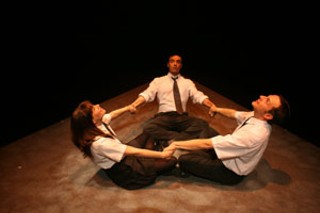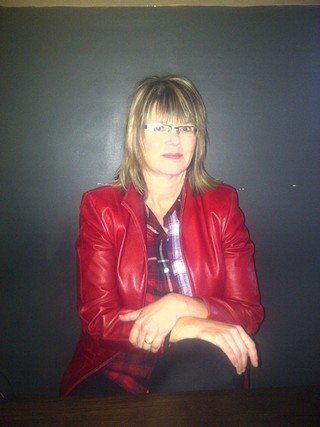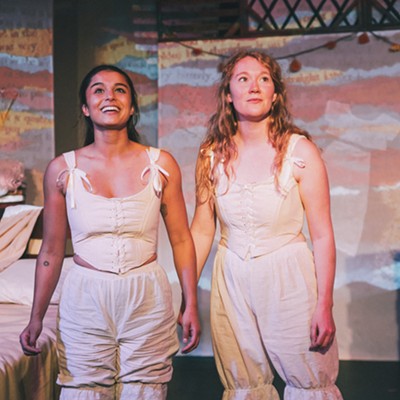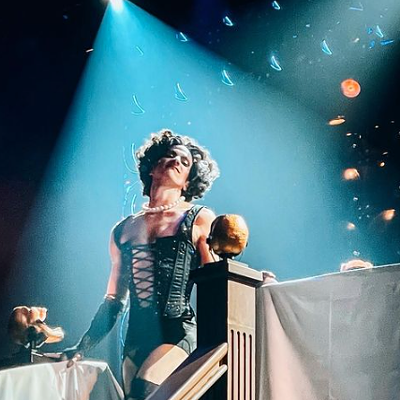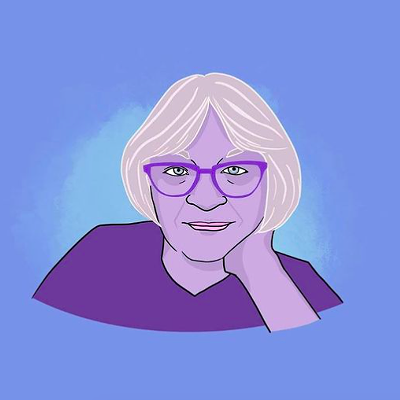The themes in Léo---Ottawa native and Toronto-based playwright Rosa Laborde’s production about a more-bitter-than-sweet coming of age---are in some ways universal. Anyone who can remember being a teenager will find themselves identifying---to differing degrees---with the play’s three characters, Léo (the poetic hedonist), Rodrigo (the political revolutionary) and Isolda (the wanderer). All three are experiencing the pain and passion of living through those tumultuous teenage years.
Told primarily in flashbacks, Léo doesn’t just deal with your garden-variety teenage angst: This one-act play is set in Chile before and after the fascist military coup that overthrew the socialist government of Salvador Allende and installed General Augusto Pinochet as dictator in 1973. This adds the extraordinary burden of political upheaval to the characters’ already difficult journey through adolescence.
“I’ve found this play really resonates with audiences, especially young audiences,” says Laborde, discussing her play and the country’s recent political history, from her home in Toronto. “And for people who come to the play not knowing much about Chilean history or politics, it often gets them interested.”
Salvador Allende was the first Marxist to be elected president of a democracy. His tenure as president was marked by a significant move towards the nationalization of industry and private property. During this time, Chile was the target of sanctions from the US, which feared the birth of another Cuba.
At the same time, Allende’s Chile was a mecca for artists and intellectuals from all over the world. Artistic development and experimentation received support from the Chilean government and many would later refer to Allende’s rule as “the 1,000 days of spring” because of the pervasive feeling of hope it had engendered.
After the bloody coup in 1973, Pinochet ruled as a dictator for 17 years. He’s widely considered responsible for---and condemned for---the kidnapping, torture and “disappearance” of thousands of people who dared to oppose his rule.
Laborde’s interest in exploring life in Chile in the early 1970s comes from a place very close to the bone: Her mother, grandmother and aunt were all political exiles from Pinochet’s oppressive rule.
“There was recently a scathing article in Toronto Life magazine saying that Canadian plays are rarely set in present-day Canada,” she says, “and that this makes them somehow less relevant to our society. But I think, as artists and children of immigrants, where you come from is integral to the work you produce.”
Laborde continues: “Telling stories from other countries and other times can explore truths that everyone can relate to. These stories connect people with similar histories and that somehow makes us more Canadian.”
The play originally opened two years ago at Toronto’s Tarragon Theatre, where it was directed by Tarragon’s artistic director, Richard Rose. Since then it has travelled to the Great Canadian Theatre Company in Ottawa, the Belfry in Victoria, BC, and has been remounted at Tarragon. It was nominated for both the Dora Mavor Moore Award for Outstanding New Play in 2006 and the 2007 Governor General’s Award for drama.
“Léo is a very touching story,” said Rose from New York City where he was doing research for the staging of a new Brendan Gall play, Alias Godot. “ is about three friends who are overwhelmed by their hormones and sexuality and end up going in very different directions. It’s about betrayal and reconciliation and ultimately about sexuality becoming a political act.”
Rose scoffs at the claim that Canadian stories aren’t being told in the country’s theatres and that plays need to be set in the here-and-now to have cultural relevance. “I think it is possible for people to see their own experiences reflected in and on the world,” he says. “Léo is set in one of the most thrilling of times and in one of the most devastating of times, but it’s basically about the nature of survival.”
Rose adds, “I think that’s a very human theme to explore.”

